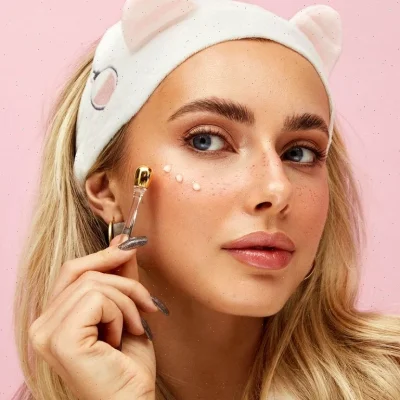Vitamin C isn’t just another trendy buzzword in the beauty world — it’s a powerhouse antioxidant with transformative abilities that protect and rejuvenate your skin from the inside out. Whether you’re a seasoned skincare enthusiast or just beginning to explore its benefits, chances are you’ve already heard about the magic of Vitamin C. Let’s dive into why this ingredient absolutely deserves a permanent spot in your routine.
Why Is Vitamin C So Important for Your Skin?
Vitamin C is more than just another ingredient — it’s a vital element that plays a key role in skin health. It shields your skin from the damaging effects of free radicals — unstable molecules that accelerate aging and harm skin cells. These free radicals are triggered by pollution, UV exposure, and even stress. As a potent antioxidant, Vitamin C neutralizes them, offering your skin essential protection. It also helps stimulate collagen production, giving your skin that firm, youthful bounce we all strive for.
The Benefits of Vitamin C for Skin
- Protection Against Free Radicals: One of Vitamin C’s biggest strengths is its ability to neutralize harmful free radicals. This helps prevent premature aging, dullness, and the formation of fine lines.
- Brightens and Evens Skin Tone: Vitamin C is known for its ability to fade dark spots and hyperpigmentation, giving your complexion a luminous, healthy glow.
- Boosts Collagen Production: Collagen is the protein that keeps our skin plump and firm. As we age, collagen production slows down, leading to sagging and wrinkles. Vitamin C plays a crucial role in supporting collagen synthesis, helping maintain skin elasticity and smoothness.
How to Use Vitamin C Correctly
When it comes to Vitamin C, stability is everything. This powerful antioxidant is sensitive to light, air, and heat — all of which can reduce its effectiveness. That’s why it’s essential to choose products packaged in opaque, airtight bottles to preserve its potency.
To get the most out of your Vitamin C, apply it in serum form either in the morning or at night — consistency is key. Just avoid using it alongside benzoyl peroxide, as this combination can diminish its benefits. Remember, it’s not just about frequency — it’s about building a regular routine your skin can rely on.
What to Pair With Vitamin C
Vitamin C works even better when paired with other antioxidants, especially Vitamin E. Together, these two ingredients create a dynamic defense system that strengthens your skin’s barrier and enhances its ability to fight environmental stressors. The result? Healthier, more resilient skin.
What Not to Mix With Vitamin C
Although Vitamin C is a standout performer, it doesn’t always play well with others. Avoid using it with strong acids or retinoids, as this can cause irritation and reduce its effectiveness. For best results, keep these ingredients separate in your routine.
In Conclusion: Vitamin C Is Your Skin’s Ultimate Ally
Adding Vitamin C to your routine isn’t just about hopping on a beauty trend — it’s about investing in your skin’s long-term health. Its antioxidant powers protect your skin from damage, while its ability to support collagen keeps your complexion firm and youthful. With its brightening effects and anti-aging benefits, Vitamin C is a non-negotiable in the fight against time. Discover the magic of this hero ingredient — and let your skin glow with the radiance it truly deserves.
FAQ – Frequently Asked Questions
Q: How often should I use Vitamin C?
A: For best results, use a Vitamin C serum daily or every other day. Consistency is key to achieving glowing, youthful-looking skin.
Q: Can I use Vitamin C in the morning?
A: Absolutely. Vitamin C is ideal for morning use because it helps protect your skin from daily environmental aggressors. You can also use it at night to support overnight skin repair.
Q: Can Vitamin C cause irritation?
A: While generally safe, Vitamin C can cause irritation for those with sensitive skin, especially at higher concentrations. Start with a lower percentage and build up gradually if needed.
Q: Can I combine Vitamin C with other skincare ingredients?
A: Yes — it pairs well with other antioxidants like Vitamin E, but avoid using it with strong acids or retinoids to prevent irritation and potential ingredient conflicts.
Q: How do I know if my Vitamin C serum has gone bad?
A: If your serum has turned dark orange or brown, it’s likely oxidized and no longer effective. Always store it in a cool, dark place and use it within the recommended shelf life.







